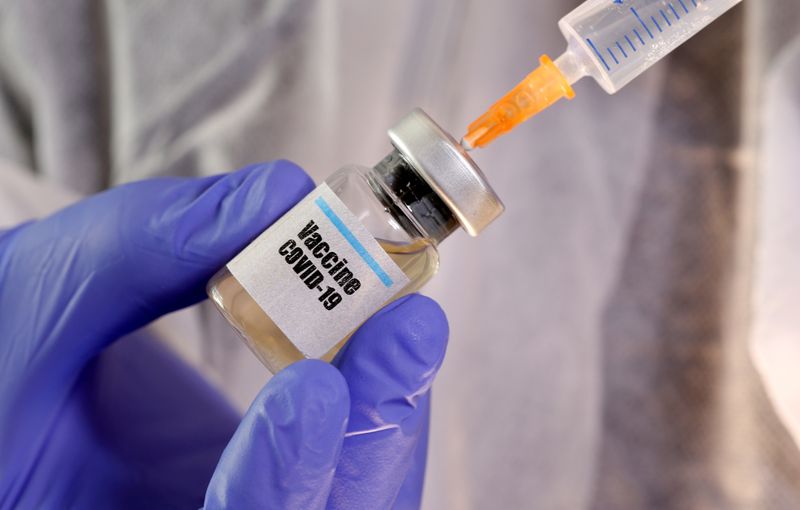By Francesco Guarascio
BRUSSELS (Reuters) - European Union states could buy potential COVID-19 vaccines through a procurement scheme co-led by the World Health Organization, the EU Commission said in what appears to be a change in position.
The move could allow EU governments to secure vaccines from companies that are not negotiating with Brussels, such as U.S. firms Merck, Inovio and Novavax (NASDAQ:NVAX). They are all in talks with the WHO scheme, dubbed COVAX, but have so far not been reported to be involved in negotiations with the EU Commission.
EU states have committed not to enter into parallel negotiations with the same vaccine manufacturers with which talks are ongoing at EU level, but this "does not exclude the possibility to take part in negotiations with other vaccine companies through COVAX," an EU Commission spokesman said.
That would represent a change of policy after the EU executive had advised the 27 EU governments not to purchase vaccines through the WHO scheme deeming it slow, expensive and legally incompatible with the parallel EU procurement programme, EU officials said in July.
The apparent change came after the WHO softened in August the terms for rich countries to join its scheme, which aims to secure 2 billion doses for the 20% of the world's most vulnerable people by the end of 2021.
It also followed criticism that the EU was effectively undermining the WHO initiative, despite projecting itself as a champion of multilateralism and as a supporter of equitable access to vaccines for all.
By forcing EU states to buy only through an EU scheme, the Commission could reduce the limited amount of doses initially available to less developed countries, because it would prioritise the 450 million EU citizens, effectively replicating nationalist policies of the United States and other countries critical of the WHO initiative.
The EU has so far reached an advance purchase deal on COVID-19 vaccines with AstraZeneca (NYSE:AZN), and has said it is in talks with Johnson & Johnson, Sanofi (NASDAQ:SNY), Moderna (NASDAQ:MRNA) and CureVac.
EU officials told Reuters in July the bloc was also talking with Pfizer (NYSE:PFE) and BionTech for the shot they are developing together.
NOT SO CLEAR
Under a confidential agreement seen by Reuters, EU states have committed not to start negotiations for upfront purchases of vaccines with companies which are already in talks with the EU.
They are also allowed to conduct parallel talks if they decide to opt-out from deals signed by the EU Commission.
The interpretation that the EU Commission had so far given to this clause was strict. It may have now agreed to a softer stance.
It remains unclear whether EU states will actually buy through COVAX, as this could result in higher costs, a European official involved in talks told Reuters.
When Germany, France, Italy and the Netherlands signed a preliminary deal with AstraZeneca in June over its potential vaccine, many EU governments complained of having been sidetracked, even if they were in theory offered access to doses.
Asked what would happen if the Commission started talks with a vaccine maker after an EU government had already began talks with it through COVAX, an EU Commission spokesman did not comment.
So far the EU Commission has committed 400 million euros ($475 million) in guarantees to COVAX but has also said the terms of its involvement were still under negotiation.
It is also openly saying that it would donate to poorer countries surplus vaccines that it acquires through its scheme, in what seems to replicate COVAX's core function.

($1 = 0.84 euros)